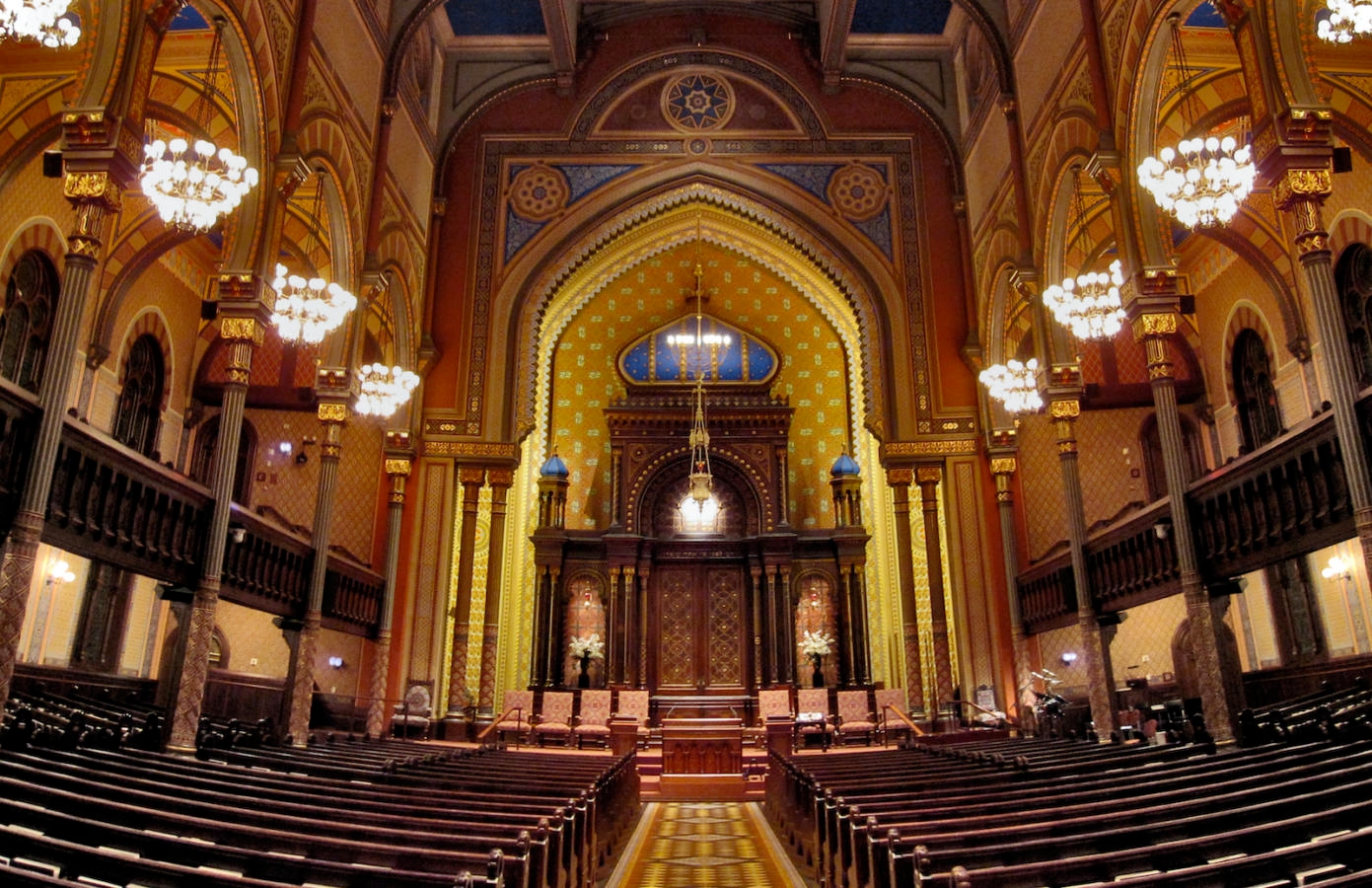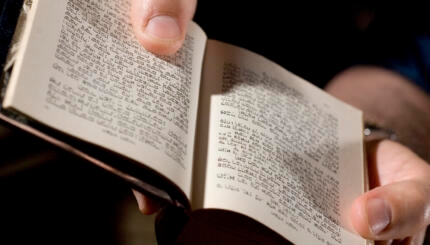Can a prayer be too familiar?
Adon Olam is an emotional and poetic masterpiece that is essentially hiding in plain sight. Many Jews are well acquainted with Adon Olam because it concludes prayer services on Shabbat mornings. Its meter makes it particularly easy to sing its words to a wide variety of melodies, including those of popular songs.
Those of us who strive to have worshippers of all ages embrace a text should be thrilled that countless Jews can immediately recite Adon Olam by memory. But somewhere along the way, the true majesty of Adon Olam got lost. It words convey nothing less than a complete framework for our relationship with God.
Click here to learn how to say Adon Olam
With your help, My Jewish Learning can provide endless opportunities for learning, connection and discovery.
Most people would identify this prayer as the closing hymn of the service. But Adon Olam is also recited first thing in the morning, even before the start of the formal prayers. It appears in most editions of the prayer book as an early meditation, to be said by an individual after putting on a tallit (prayer shawl) as a preparation for the actual service.
Put another way, the words of Adon Olam serve as bookends to our daily prayer. In the mere space of five stanzas, the poet has defined God as existing b’li reishit b’li tachlit — without beginning or end. It makes perfect sense, therefore, to use these words to frame our own prayers.
Before we even begin to pray, we try to look at the big picture. Who are we? What is our place here? How does God fit into our lives? So we look to the very first words of Adon Olam.
Adon Olam asher malach, b’terem kol y’tzir nivrah
Before creation shaped the world, God, eternal, reigned alone.
V’acharei kichlot hakol, l’vado yimloch nora
When all is ended, God alone will be glorious in eternity.
In other words, whatever prayers or supplication we are about to make, whatever step we are taking on our own personal journey, there exists something vastly more grand and permanent that transcends our specific needs. God was here before us and will be present after we’re gone. That’s a humbling message, and informs how we approach the rest of the service.
So why does Adon Olam appear again later, to conclude our service? Haven’t we sufficiently framed our prayer through the context of God’s infinite presence?
The grandeur of this poem becomes evident in its closing stanza. Until this point, the text expressed God’s presence in broad strokes: God has always been present. God is, was, and will be — without a beginning or an end. But then Adon Olam closes with a starkly different and more personal theme.
B’yado af-kid ru-chi, b’et ishan v’a-irah
I place my soul in God’s care, when I sleep as when I woke.
V’im ru-chi g-viyati, Adonai li v’lo i-rah
And if my soul should leave me, God is with me and I will have no fear.
When we are first starting our day, we’re seeking support and perspective. We want to know that our difficulties are not all consuming. But as we end our day, our needs are different. We seek reassurance and comfort. Adon Olam is actually a sublime bedtime message, expressing many of the same ideas that we communicate to our children: It’ll all be OK. You’re safe and protected. I’m here.
As in real estate, when it comes to certain prayers, location is everything. We can see two instances of an identical text and comprehend them in utterly different ways based only on where they appear.
The brilliance of this beloved but often lesser examined poem lies in its ability to elicit a number of distinct connections with the reader. Adon Olam effectively reflects our desire to understand God’s presence in a multitude of ways — whether that takes place in the midst of public prayer or the quiet serenity of personal meditation.
Cantor Matt Axelrod has served Congregation Beth Israel of Scotch Plains, New Jersey, since 1990. He is a graduate of the Jewish Theological Seminary of America and a national officer of the Cantors Assembly. Cantor Axelrod is the author of “Surviving Your Bar/Bat Mitzvah: The Ultimate Insider’s Guide,” and “Your Guide to the Jewish Holidays: From Shofar to Seder.” You can read his blog at mattaxelrod.com.



